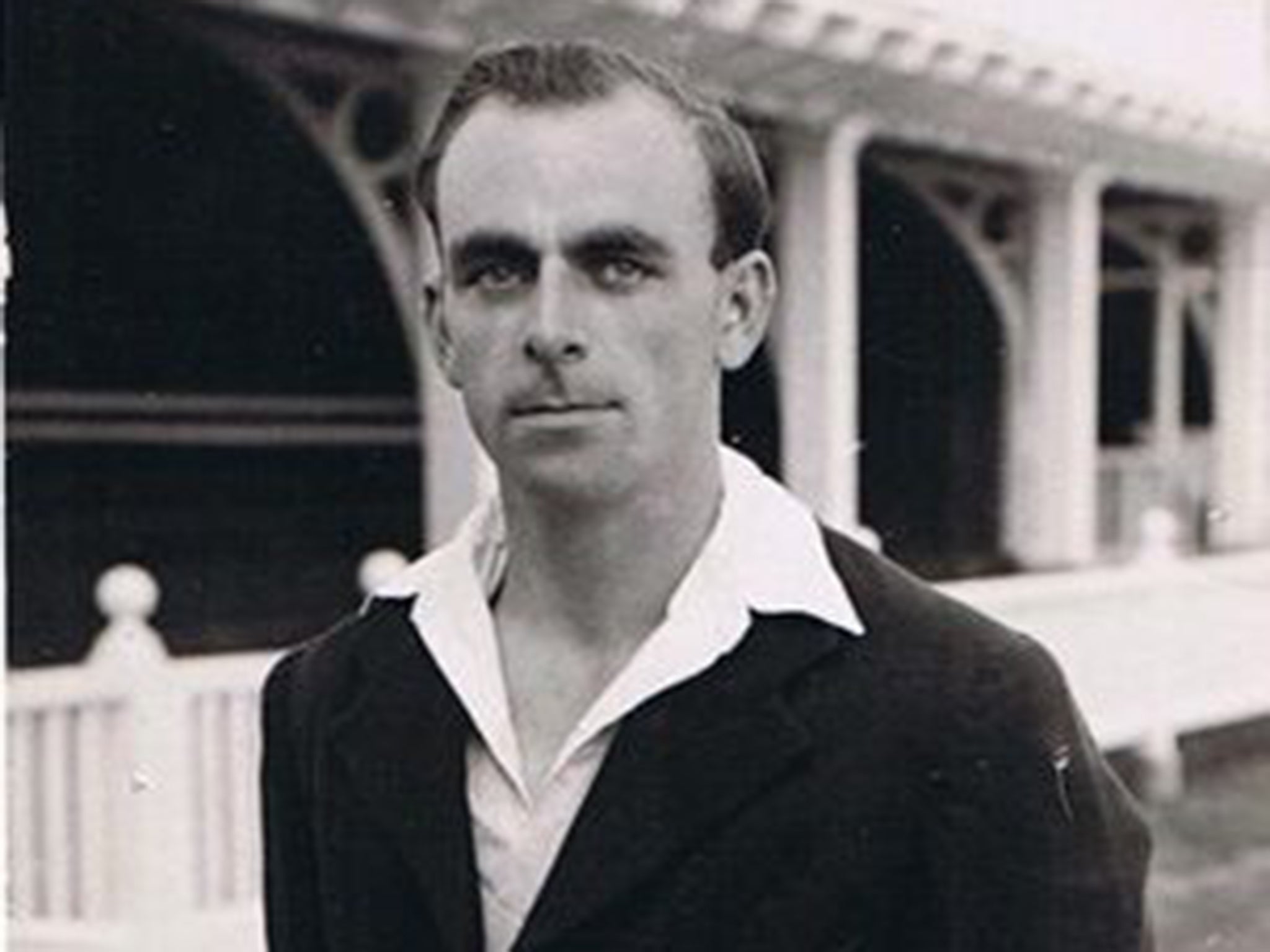Fred Ridgway: Cricketer and footballer who won Test caps for England and gave sterling post-war service to Kent
He was an economical wicket-taker throughout his career, thanks to his good length and late swing

Your support helps us to tell the story
From reproductive rights to climate change to Big Tech, The Independent is on the ground when the story is developing. Whether it's investigating the financials of Elon Musk's pro-Trump PAC or producing our latest documentary, 'The A Word', which shines a light on the American women fighting for reproductive rights, we know how important it is to parse out the facts from the messaging.
At such a critical moment in US history, we need reporters on the ground. Your donation allows us to keep sending journalists to speak to both sides of the story.
The Independent is trusted by Americans across the entire political spectrum. And unlike many other quality news outlets, we choose not to lock Americans out of our reporting and analysis with paywalls. We believe quality journalism should be available to everyone, paid for by those who can afford it.
Your support makes all the difference.While enjoying a career in both cricket and football, Fred Ridgway was one of England’s oldest Test cricketers. He was an accomplished and thoughtful fast bowler, his talents finding a particularly happy and expressive outlet spearheading the Kent attack in the years following the Second World War. Though he lacked the pace of a Loader or Tyson, many felt that he was unfortunate to win no more than five caps.
A footballer’s son, Ridgway spent his formative years in Cheshire. He was a wicketkeeper before his club coach, Jack Iddon, saw his potential as a fast bowler. And he was an accomplished outside-right, his football career taking him to Wolverhampton Wanderers then his home town club, Stockport County.
His links with Kent can be traced back to winter 1942, when he joined the Royal Marines, based in Deal. Winning numerous sporting honours while in uniform, he also guested for Portsmouth FC. A hat-trick for Kent Second XI against Sussex at Hastings in 1946 saw him immediately offered a contract.
Ridgway soon established himself at the forefront of the English game. The willing workhorse, bowling more than 800 overs a season, he remained an economical wicket-taker throughout his long career. Good length and late swing played a huge part in his success.
The winter of 1951 saw Ridgway in India, Pakistan and Ceylon with a young MCC side, but in the face of some fine Indian batting and the slow, low wickets, he struggled in his five Tests, his seven wickets costing more than 50 runs apiece. He never again found favour with the selectors, and his winters were invariably spent playing on the wing for Ramsgate FC.
Ridgway happily resumed his role as the county’s main strike force. How much better he might have been had he operated in harness with a bowler of similar pace was clearly illustrated by the arrival, in 1955, of that wily pace man, David Halfyard. Together with the rapidly emerging David Sayer, in 1958, they helped lift the county up to eighth place, its highest championship position since 1947.
Over 16 seasons with Kent, Ridgway took 1,067 wickets in 341 games. Among many match-winning returns, his best was in 1950 against Nottinghamshire at Dover, when he took 8 for 39. He also had the rare distinction of claiming four wickets in four balls, against Derbyshire at Folkestone in 1951.
Attracting a then-record benefit in 1958, he stepped down in 1961 and returned to local league cricket. He also began a new career as a production planner in the paper-making industry. Later, successfully moving into coaching, he made a positive contribution to the game at grass roots level.
Frederick Ridgway, cricketer and footballer: born Stockport 10 August 1923; married 1944 Kathleen Hills (two daughters); died Maidstone 26 September 2015.
Join our commenting forum
Join thought-provoking conversations, follow other Independent readers and see their replies
Comments